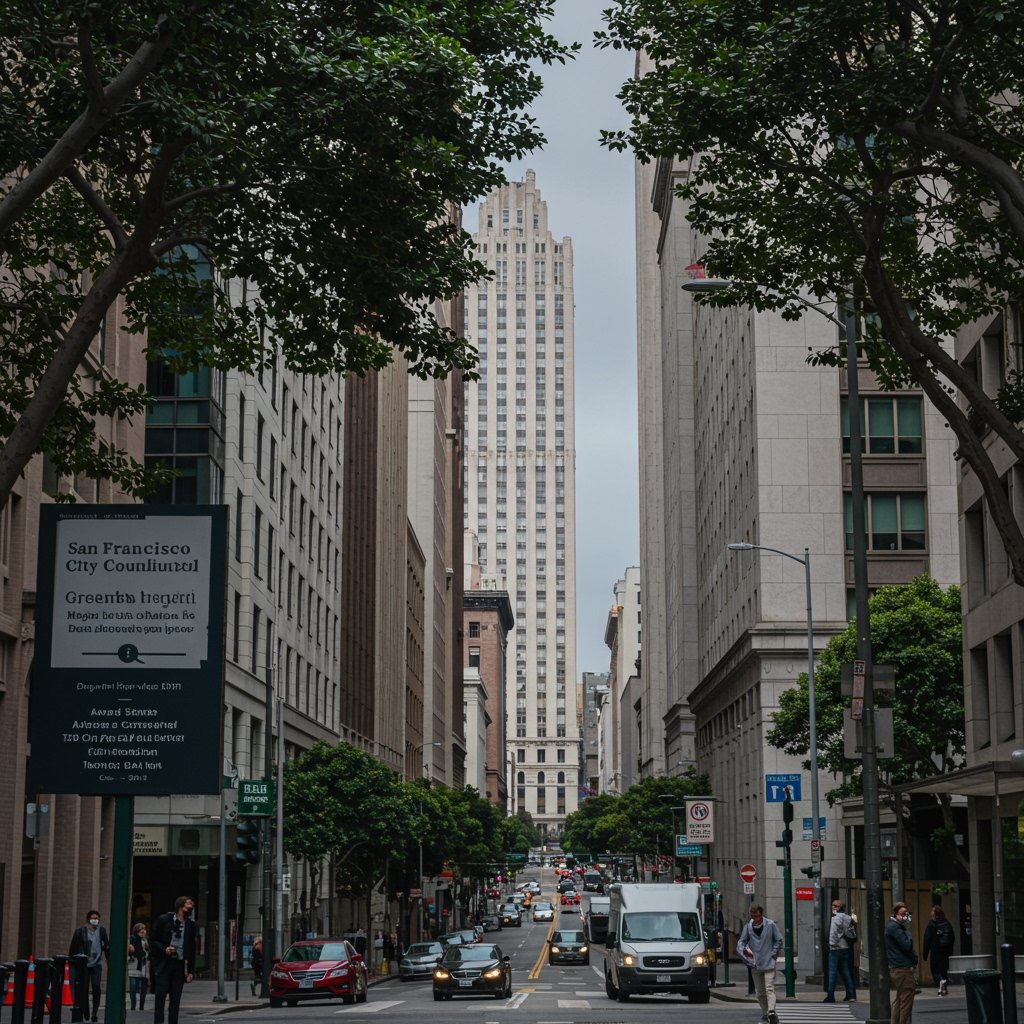San Francisco Adopts Sweeping New Data Privacy Ordinance
San Francisco, CA – In a significant move poised to reshape how technology companies handle the personal information of its residents, the San Francisco City Council on March 27, 2025, passed Ordinance 25-03. The vote, which concluded with an 8-3 majority in favor, establishes a new, stringent framework for data privacy, directly targeting companies that collect, process, or store the personal data of individuals residing within the city limits.
The legislation represents one of the most ambitious local efforts in the United States to regulate the data practices of the tech sector, a sector that forms the backbone of the Bay Area economy. It is designed to afford San Francisco residents greater control and transparency regarding their digital footprints, addressing growing concerns about data exploitation and the opaque nature of data collection by major platforms.
Key Provisions of Ordinance 25-03
Ordinance 25-03 introduces several key requirements aimed at bolstering consumer privacy. Among the most significant mandates are the demands for clearer opt-out mechanisms and detailed reports on data usage. Under the new law, companies covered by the ordinance will be required to make it significantly easier for residents to decline the sale or sharing of their personal data, moving away from convoluted processes often criticized as dark patterns.
Furthermore, the ordinance compels companies to provide residents with comprehensive reports detailing exactly what personal data has been collected about them, how it is being used, with whom it is being shared, and for what purposes. These reports must be easily accessible and presented in an understandable format, a direct response to calls for greater transparency in data practices.
Scope and Impact on the Tech Sector
The ordinance’s reach extends to major tech companies headquartered in or operating significantly within the city. This broad scope ensures that both established giants and burgeoning startups handling substantial amounts of San Francisco residents’ data will fall under the purview of the new regulations. The definition of “operating significantly” is expected to be further clarified through subsequent regulations but is understood to include companies with a substantial user base, revenue generated from, or physical presence within San Francisco.
Given San Francisco’s status as a global technology hub, the ordinance is expected to have far-reaching implications, potentially setting a precedent for other municipalities considering similar local privacy regulations. Compliance will necessitate significant changes in data handling protocols, privacy policies, and user interface design for many affected companies.
Advocacy and Rationale
The legislation was championed by Supervisor Aisha Khan, who has been a vocal advocate for stronger consumer protections in the digital age. Speaking after the vote, Supervisor Khan emphasized that the ordinance is a necessary step to protect residents in an era of pervasive data collection. She highlighted that while state and federal privacy laws exist, they do not always provide the granular control and transparency that local residents deserve from companies operating directly in their community.
“Today, San Francisco has taken a bold stand for digital rights,” stated Supervisor Khan. “Our residents deserve to know how their personal information is being used and should have the power to say no. This ordinance brings much-needed accountability to the tech industry and empowers individuals in the digital realm.”
Industry Concerns and Potential Challenges
The passage of Ordinance 25-03 has not been without opposition. Tech industry groups, including the prominent Silicon Valley Tech Alliance, have expressed significant concerns about compliance costs and potential conflicts with state and federal regulations. These groups argue that a patchwork of local regulations across different cities could create an overly complex and burdensome compliance landscape for companies operating nationwide or globally.
Representatives from the Silicon Valley Tech Alliance voiced worries that the unique requirements of San Francisco’s law might conflict with existing mandates under California’s Consumer Privacy Act (CCPA) or potential future federal privacy legislation. They argue that a fragmented regulatory environment stifles innovation and places undue financial strain, particularly on smaller companies.
The industry’s concerns extend to the potential for possible legal challenges. It is widely anticipated that one or more tech companies or industry consortia may file lawsuits challenging the legality of the ordinance, potentially on grounds of preemption by state or federal law, or as an unconstitutional burden on interstate commerce.
Next Steps and Implementation Timeline
The passed ordinance now heads to the mayor’s office. The mayor’s expected signature next week is largely seen as a formality, indicating that the executive branch supports the council’s action. Following the mayoral signature, Ordinance 25-03 is set to take effect 90 days thereafter.
This 90-day window provides companies with a period to review the final text of the law, assess their current data handling practices, and implement the necessary technical and procedural changes to achieve compliance. The coming months are expected to involve intense activity as companies prepare for the new regulations and potentially navigate the initial phases of legal scrutiny.



















